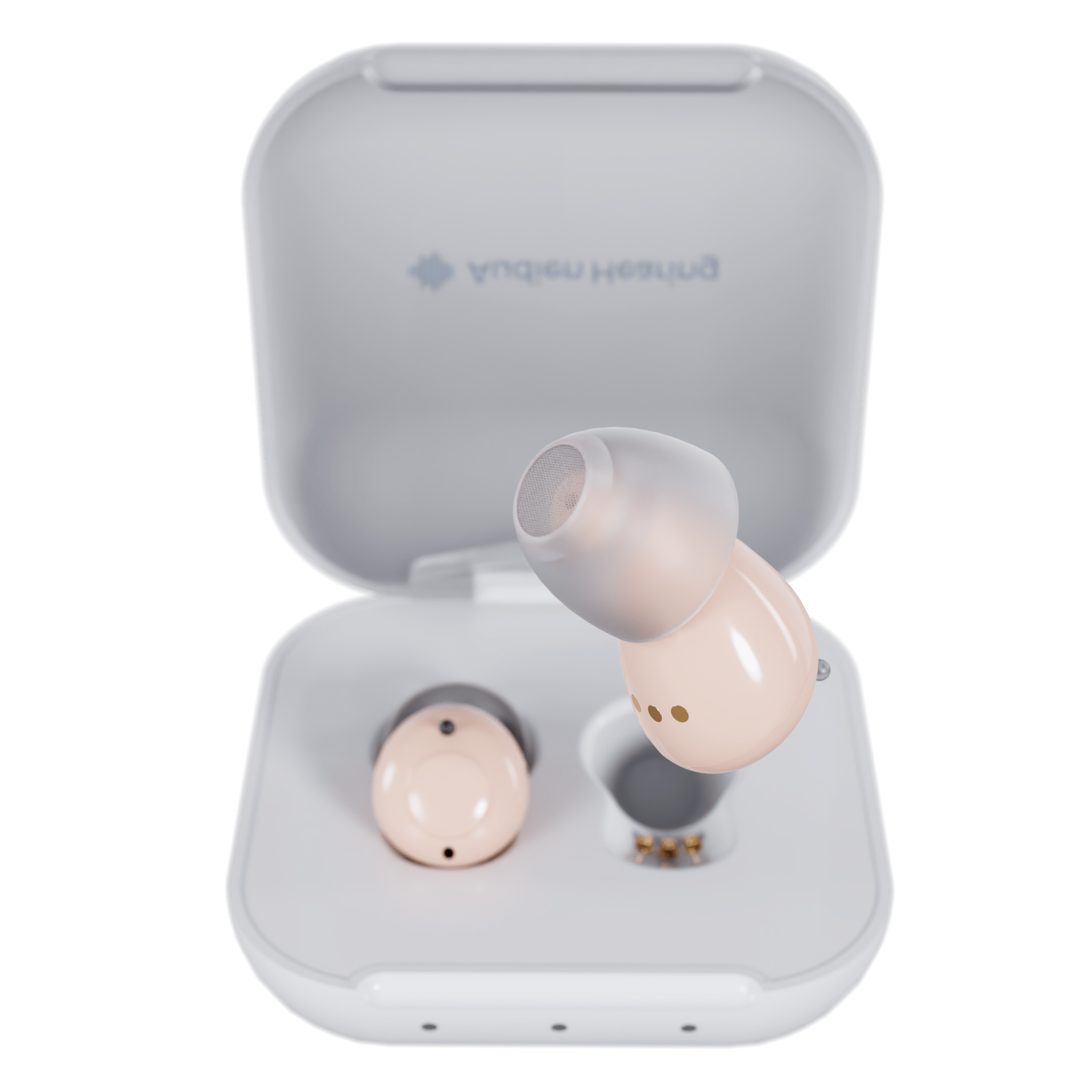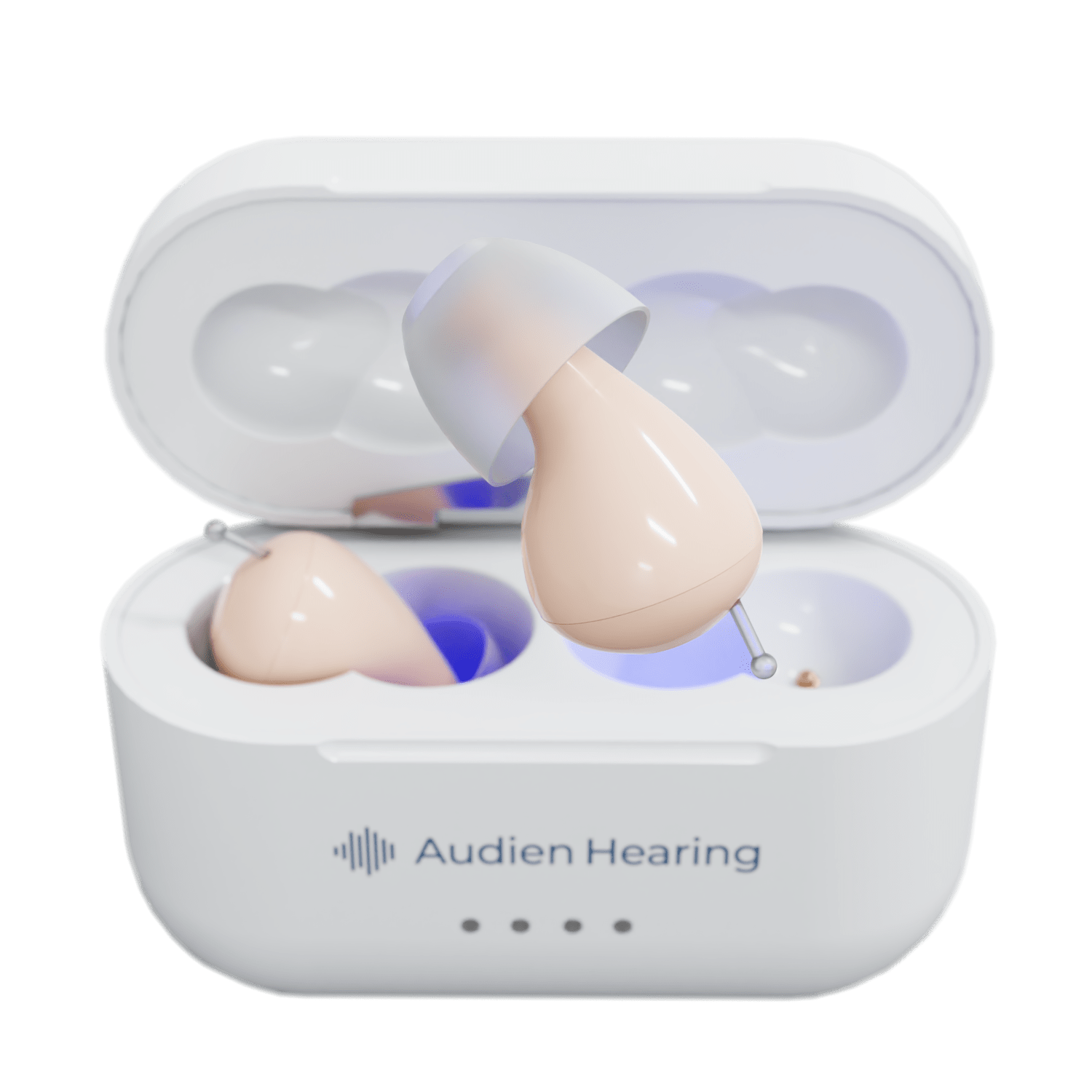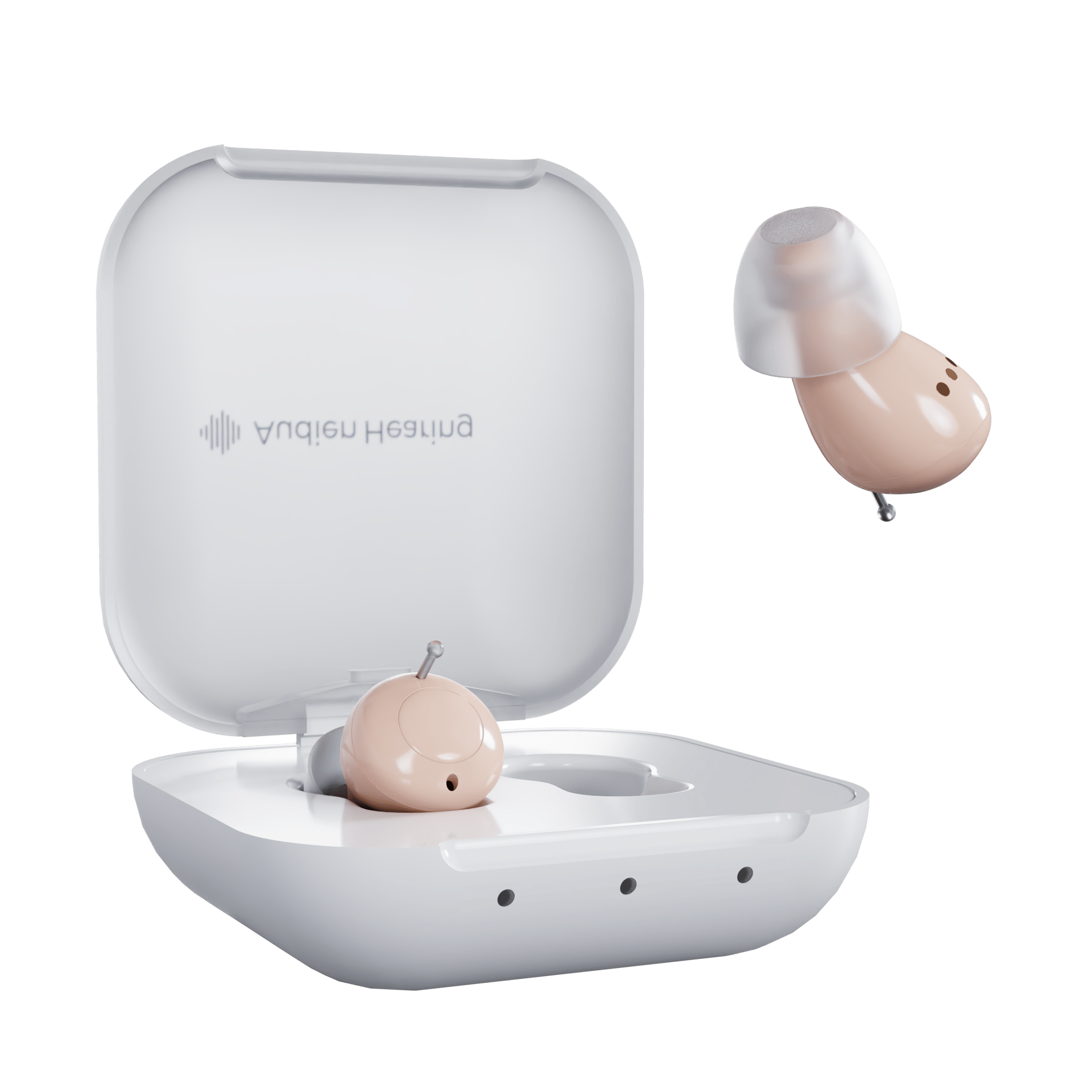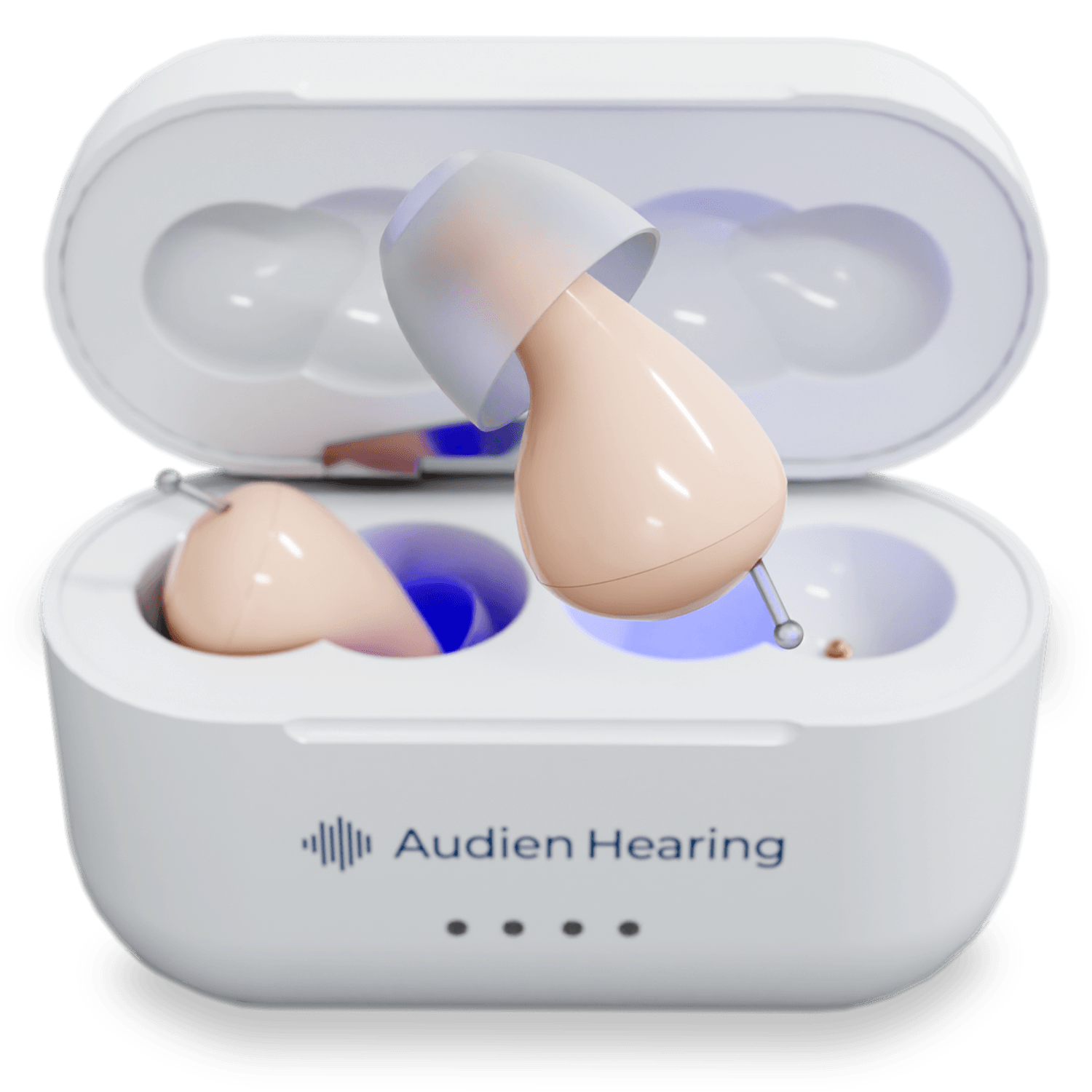As people age, some changes are natural and expected. Muscle mass is reduced, joints have less flexibility and strength, and wrinkles start to appear. Many older adults also notice issues with their senses, especially their sight and hearing. While glasses are common, hearing aids are less widely used. Learning how to clean hearing aids can be a new experience, but it is vital to keep these beneficial devices fully functional.
How To Clean Hearing Aids Safely
Hearing aids are complicated pieces of technology that require careful care. You can't rinse them in water like you may be able to do with other medical equipment because they could become damaged. Cleaning your aids takes a bit of care but doesn't have to be hard.
Understanding the Parts of Your Hearing Aids

Before you begin cleaning your hearing aids, it’s important to understand the different parts of the device, as they vary depending on the style you use. Many behind-the-ear models consist of the main hearing aid that sits behind the ear, which contains the microphone, amplifier, and other electronic components. A thin wire or receiver connects the main device to an ear mold or dome that fits into the ear canal and helps deliver sound clearly.
With an in-the-ear model such as the Audien Atom Pro, the design is more compact and has fewer pieces to manage. The entire device fits in the ear and includes a soft dome for comfort and physical stability. These models are typically rechargeable and come with a charging case that also needs occasional cleaning.
Each of these components—whether behind-the-ear or in-the-ear—requires regular care to maintain hygiene, sound quality, and proper performance. Taking a few minutes each day to clean them can help extend the life of your device and keep your hearing experience as clear and comfortable as possible.
Proper Cleaning Tools for Your Hearing Aids

To clean your hearing aids safely and effectively, it’s important to use the right tools. One of the most essential is a soft-bristled cleaning brush, specifically designed for hearing aids. This brush allows you to gently remove earwax and debris from small crevices without damaging the microphone or receiver openings. Avoid using general-purpose brushes or harsh materials, which may scratch or dislodge delicate components.
Another helpful tool is a wax pick or loop. This small instrument is designed to remove wax or debris from the dome or sound outlet of the hearing aid. Only use tools intended for hearing aids—improvised items like toothpicks, paperclips, or screwdrivers can damage the device and void your warranty.
For rechargeable models, a dry cloth or hearing aid-safe sanitizing wipe can be used to clean contact points and the charging case. Avoid using alcohol-based wipes or excessive moisture, as this can damage electronic components.
How To Clean Your Hearing Aids Daily

Establishing a simple daily cleaning routine helps prevent buildup and ensures your hearing aids continue to function properly. Every day, your ears naturally produce wax and oil that can accumulate on the device—especially on the parts that sit deep inside the ear canal.
To clean your hearing aids:
-
Remove the device from your ear and gently wipe it with a clean, dry cloth to remove any visible debris.
-
Use your cleaning brush to sweep around the microphone opening, sound outlet, and edges of the device.
-
Remove the dome (the soft silicone tip at the end of the hearing aid) and clean around and inside it. The dome often collects the most wax, so be sure to check it carefully.
-
Use your wax pick to remove any wax that may be lodged in the dome or near the receiver port. Be gentle and avoid inserting anything into the microphone or speaker openings.
To sanitize, use only hearing aid-safe wipes made for electronic devices. Avoid rubbing alcohol or household disinfectant wipes, which can dry out or damage components. Be especially cautious not to let moisture get into the microphone or receiver ports.
For rechargeable models, don’t forget to clean your charging case. Wipe down the contact points and the interior of the case to keep it free from dust, wax, or residue. A quick wipe once or twice a week is typically enough.
If you ever notice that wax or debris is stuck in the microphone or speaker opening and you can’t remove it safely, don’t try to force it out. Instead, contact the support team for your hearing aid provider. Audien Hearing has customer support available by phone, email, and live chat to walk you through proper care and troubleshooting steps.
Why You Need To Clean Your Hearing Aids

Cleaning your hearing aids is one of the easiest and most effective ways to make sure they continue to work well. Because hearing aids sit close to or inside your ear, they naturally come into contact with earwax, skin oils, and debris. Over time, this buildup can interfere with how the device functions—reducing sound clarity, affecting fit, and even leading to performance issues if not addressed.
Regular cleaning helps:
-
Maintain consistent sound quality
-
Prevent blockages in the speaker or microphone
-
Support general ear hygiene and comfort
-
Prolong the life of your device
Another key part of maintenance is changing your wax guards—the small filters that help prevent earwax from entering the speaker opening. In general, wax guards should be replaced at least once a month, but some people accumulate earwax more quickly than others and may need to change them more frequently to keep sound loud and clear. If your hearing aids suddenly sound weak or muffled, it may be time to replace your wax guards.
You can order replacement wax guards anytime by visiting our website or contacting our support team. Subscriptions are also available if you’d like a regular supply delivered automatically—so you never run out when you need them.
While hearing aids themselves don’t cause ear infections, poor maintenance and hygiene practices can increase the chance of ear irritation or moisture buildup, which may lead to discomfort. Keeping your hearing aids clean, dry, and properly maintained supports a more comfortable and reliable hearing experience.
Benefits of Fully Functioning Hearing Aids

When hearing aids are functioning properly, they do more than just make things louder—they help you stay connected. Whether you're having a conversation, participating in meetings, or enjoying a favorite show, clear, amplified sound supports communication, confidence, and independence.
Hearing aids also help reduce the mental strain that often comes with untreated hearing loss. When hearing is difficult, your brain has to work harder to fill in gaps, which can lead to listening fatigue and frustration. By improving sound access, hearing aids can reduce that extra effort and help you stay more engaged with the world around you.
Consistent hearing aid use has also been linked in research to better long-term cognitive outcomes, particularly when started early. While hearing aids do not restore lost cognitive function, they help keep the brain stimulated by ensuring it continues to receive meaningful auditory input—something that becomes especially important as we age.
The Importance of Learning How To Clean Hearing Aids
Getting hearing aids is a great step towards improving your health and quality of life, and you can keep those gains by taking care of your devices. Once you learn how to clean hearing aids, you can make sure you get all the value they have to offer. If you want to find devices that are right for you and take charge of your hearing, check out the options from Audien Hearing.
https://health.clevelandclinic.org/hearing-aids-how-to-pick-the-right-type-for-you/
https://health.clevelandclinic.org/how-to-get-used-to-hearing-aids/
https://www.healthyhearing.com/help/hearing-aids/cleaning
https://www.webmd.com/healthy-aging/how-to-clean-hearing-aids
https://www.fda.gov/medical-devices/hearing-aids/benefits-and-safety-issues
https://www.healthyhearing.com/report/50313-Understanding-the-various-parts-of-a-hearing-aid













